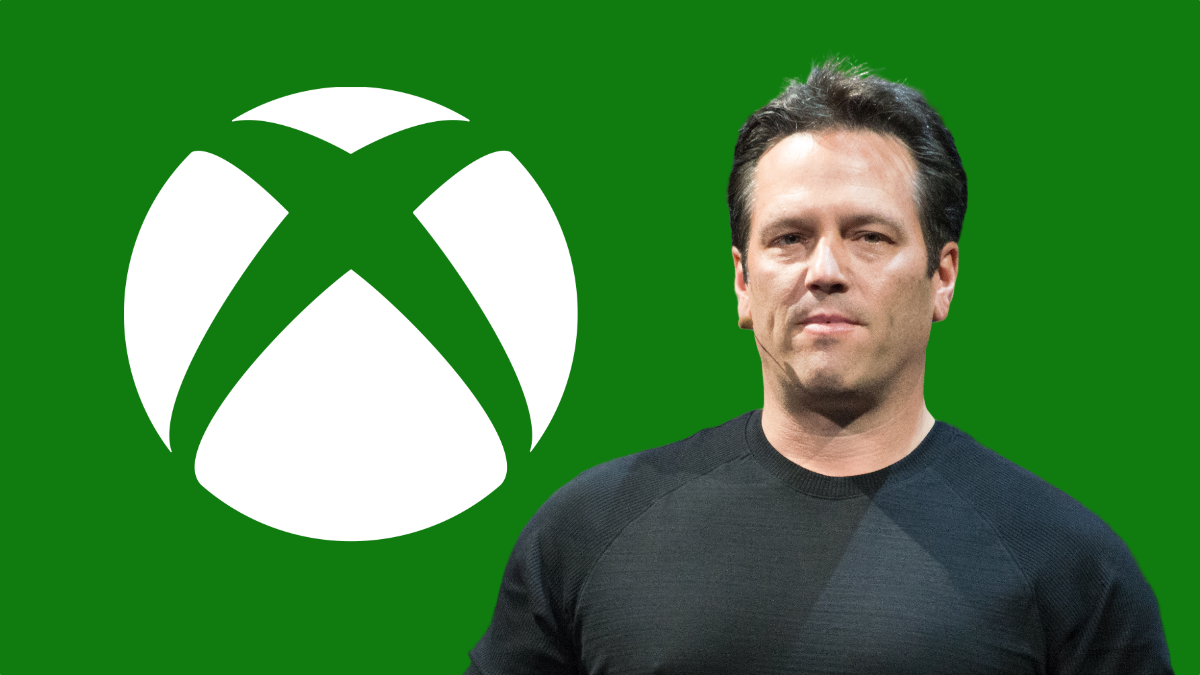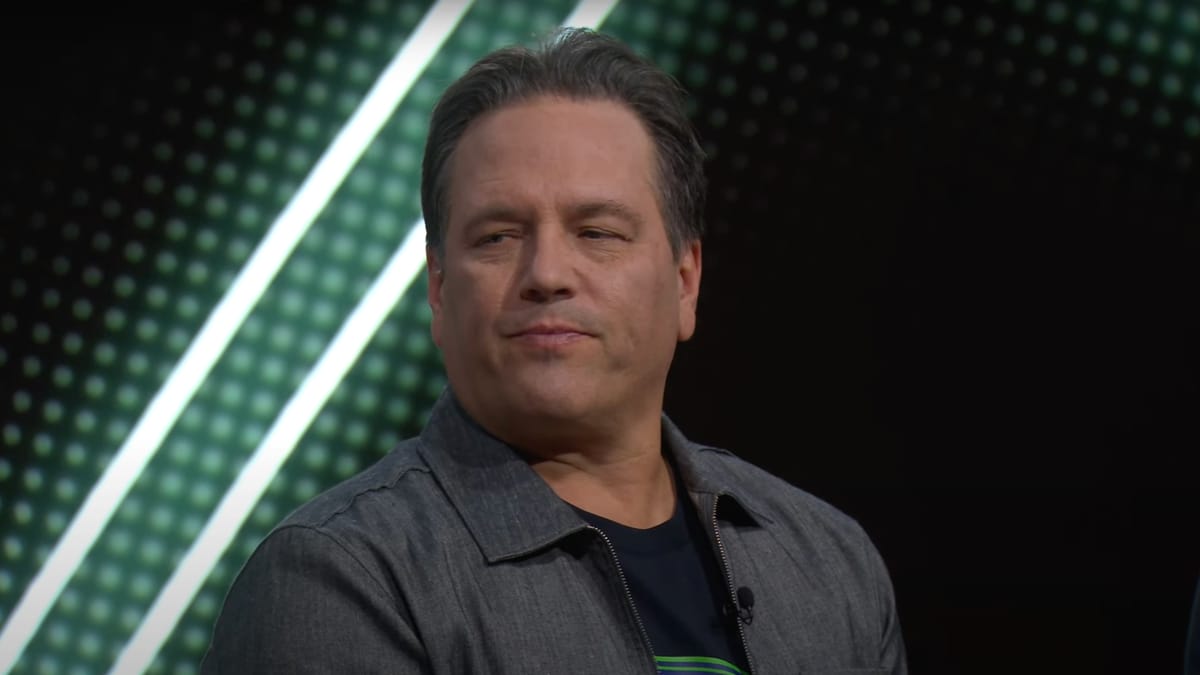Phil Spencer isn’t your friend
The Xbox head uses his gamer image to sell terrible corporate decisions

On Tuesday, Xbox announced it was shuttering three of its internal game studios and turning a fourth into a support studio. It was a bad look. The games industry has been experiencing massive layoffs over the past year, including the 1,900 people Microsoft already fired after it completed its $68.7-billion acquisition of Activision Blizzard. Even worse, the company only picked up those four studios in 2021 after buying their parent company ZeniMax Media.
At the time, Xbox head Phil Spencer assured gamers that Microsoft only wanted to support the studios under the ZeniMax umbrella and help them make great games. “Our plan is to leave it alone,” said Spencer in September 2020, when the $7.5 billion deal was announced. “ZeniMax has an amazing track record of building great games. Our goal is to make ZeniMax the best ZeniMax they can be.”

As the man in charge of the Xbox division, Spencer didn’t just style himself as another corporate executive, but as a fellow gamer serving that community. He sold a vision to players where Microsoft was going to open its war chest to force industry consolidation, but it would work out for gamers because Xbox would support its studios to make great games that would become more accessible though an affordable subscription service. The history of consolidation and even of video subscription services should’ve set off alarm bells, but Microsoft had Spencer to sell the message.
This time last year, some of the games media and players themselves were praising Spencer for his candid comments on the problems with Redfall, an Xbox exclusive made by Arkane Austin that didn’t live up to expectations. In an interview with the Kinda Funny Xcast, he commented on how he saw Xbox’s relationship to its growing number of studios in light of that underwhelming release.
One thing I won’t do is push against [the] creative aspirations of our teams. When a team like Rare wants to do Sea of Thieves, when a team like Obsidian wants to do Grounded, when Tango [Gameworks] wants to do Hi-Fi [Rush] when everyone thought they were probably doing The Evil Within 3 ... I want to give the teams the creative platform to go and push their ability, to push their aspirations.
The friendly face of Xbox was not just admitting the company had let players down, but committing once again to supporting its studios. “I’m a huge supporter of Arkane Austin, their track record is awesome, I love a lot of their games that they’ve built,” he said in the interview. But now Arkane Austin and Tango Gameworks are among the studios being shut down entirely, as Head of Xbox Game Studios Matt Booty says the closures are “grounded in prioritizing high-impact titles” — meaning the big games based on known properties. In light of these cuts, gamers are demanding Spencer resign. But people should’ve seen it coming.
Why Microsoft needed Phil Spencer
In March 2014, Spencer was named Head of Xbox — and he had a big job on his hands. After a successful console cycle where the Xbox 360 had the momentum against the Playstation 3, gamers were turning against the brand. Just as Sony’s overconfidence with the Playstation 2 had imperiled its successor, Xbox had succumb to the same hubris and was squandering the goodwill it had built up with players over the previous eight years.
When Microsoft announced the Xbox One in 2013, the company wanted to sell people a home entertainment device — but that wasn’t what consumers wanted. It also forced players to buy its Kinect peripheral by bundling it with the console, pushing up the sale price. But worse of all, the company wanted to put a strict digital rights management (DRM) system on games that would limit sharing and ultimately force players to connect to the internet every 24 hours or else their entire game libraries would be disabled.
Players were furious at Microsoft, handing Sony an opportunity to win back the customers it had lost in the previous cycle. On June 10, 2013, both companies made their pitches for their next-generation consoles at E3. Microsoft showed off a ton of games in the morning, but couldn’t shake the anger over its DRM policies. The $499 price tag it unveiled didn’t help. That evening, Playstation responded with a strong slate of games of its own, but made two key announcements to win over players: that the console would not place restrictions on physical media or force people to do online authentication, and that the Playstation 4 would cost a full $100 less than the Xbox One.
After the shows, IGN wrote that “if you care about games like [Sony] do, you'll buy a PlayStation 4,” while GameSpot declared the Playstation 4 was “the gamer's choice for next-generation.” Weeks after E3, Don Mattrick, the Microsoft executive who was in charge of Xbox, left the company, making his successor clean up his mess. When Spencer was officially promoted the following year, he had already been a senior executive at Microsoft Studios, but once he took over it was clear that more than good business decisions would be needed to turn things around. The company also needed a friendly face.
The friendly corporate face
When Spencer took the reins, he didn’t waste time ditching the Kinect so he could cut the price of the Xbox One and making it clear he was committed to Xbox as a games company — not a home entertainment service. That obviously bought him goodwill, but as the Xbox One fell further and further behind the Playstation 4, Xbox needed a bigger response.
In that Xcast interview last year, Spencer explained that losing in the PS4/XB1 era meant a ton of gamers were locked into the Playstation ecosystem because they’d already built up digital game and trophy libraries on the other console. It certainly helped that Playstation had a more consistent record of releasing good games. That meant it would be a lot harder for the Xbox console to ever truly recover unless Playstation seriously misstepped. The company didn’t just need a better console; it needed to change the very paradigm of the competition. That was where Game Pass came in.

After taking over music and video, Xbox figured it should drive the games industry toward a subscription model. Getting people to adopt Game Pass would take a lot of upfront investment to offer the service below cost and build out a library of games, but if Xbox did it first, it would get a head start on Playstation in what it hoped would be the next phase of video gaming. It also helped that Microsoft had much deeper pockets than Sony to fund that effort.
All the while, Spencer assured gamers the strategy was all in their interest: “Play the games you want, with the people you want, anywhere you want,” he echoed as a slogan. “When everybody plays, we all win.” While I’m sure Spencer loves games, ultimately it was a plan to increase Microsoft’s power in the games industry and eventually the profits it would derive from the Xbox division. Now we’re seeing the consequences of that: layoffs, studio closures, a more limited slate of games, and the possibility that Microsoft starts to look more like a publisher than a platform holder.
The strategy is failing
Xbox and Game Pass won’t disappear, but the strategy isn’t working. Xbox Series X/S has sold about half the number of units as Playstation 5, and the gap seems to be widening as the PS5 outsold it by a 3-to-1 margin in 2023. Game Pass subscriber growth is also well below where the company projected it would be several years ago.
According to Circana executive director Mat Piscatella, Game Pass saw significant growth from late 2019 to early 2021, but has since leveled off. “Purchasing games and add-on content as well as free-to-play models are still the vastly preferred method of getting to video games by US consumers,” he told Bloomberg. Even worse, Niko Partners analyst Daniel Ahmad recently observed that Xbox gaming revenue is actually down 5% year over year if Activision Blizzard revenue is excluded.

Back in February, there was more controversy around Xbox when news leaked that it was going to release some of its previously exclusive titles on other platforms, including Playstation. Some Xbox fans felt betrayed, prompting leadership to record a video podcast explaining that the plan would only apply to four games, none of them major titles — at least to start. Spencer even began talking about exclusive games becoming a smaller part of the industry.
After trying to “spend Sony out of business,” as Booty put it in a 2019 email, the company is reportedly debating whether to even put Call of Duty in Game Pass and planning yet another price increase to the service. The job cuts also aren’t over: voluntary severance agreements are already being offered to other staff at ZeniMax and rumors suggest other parts of Xbox will be further hit too. When asked about the studio closures at an internal town hall, Booty said, “We need smaller games that give us prestige and awards,” as if Tango Gamesworks’ Hi-Fi Rush hadn’t been successful or lauded. A game project manager at the studio posted photos of its accolades after those comments, asking, “Not enough?”
Not enough?#HiFiRush #TangoGameworks pic.twitter.com/3OLhYAPbxU
— KazuakiEgashira (@ega1002) May 9, 2024
Charting a new path
As the controversy over the closures has escalated, Spencer has been missing in action. After using his persona as a fellow gamer to sell a bad corporate strategy to fans of Xbox, it will be interesting to see what happens to him next. Will he be sidelined — or even sacrificed — as the company pivots to a strategy focused on milking the major franchises Microsoft bought with its ZeniMax and Activision Blizzard acquisitions beyond Xbox, or will he simply pivot to selling another corporate vision? Either way, the past decade of Spencer’s tenure as head of Xbox shows exactly why corporate executives that try to present themselves as your friend shouldn’t be trusted.
At the end of the day, their allegiance is to the company that pays them — and that company now wants to pursue a different strategy. As a former longtime Xbox employee told IGN, “it’s no longer Xbox, but Microsoft Gaming.” The games business has to deliver for the broader corporate empire, and if console sales are slowing and Game Pass is stagnating, that means the games have to generate as much as possible. Just selling them to Xbox gamers won’t be enough.






